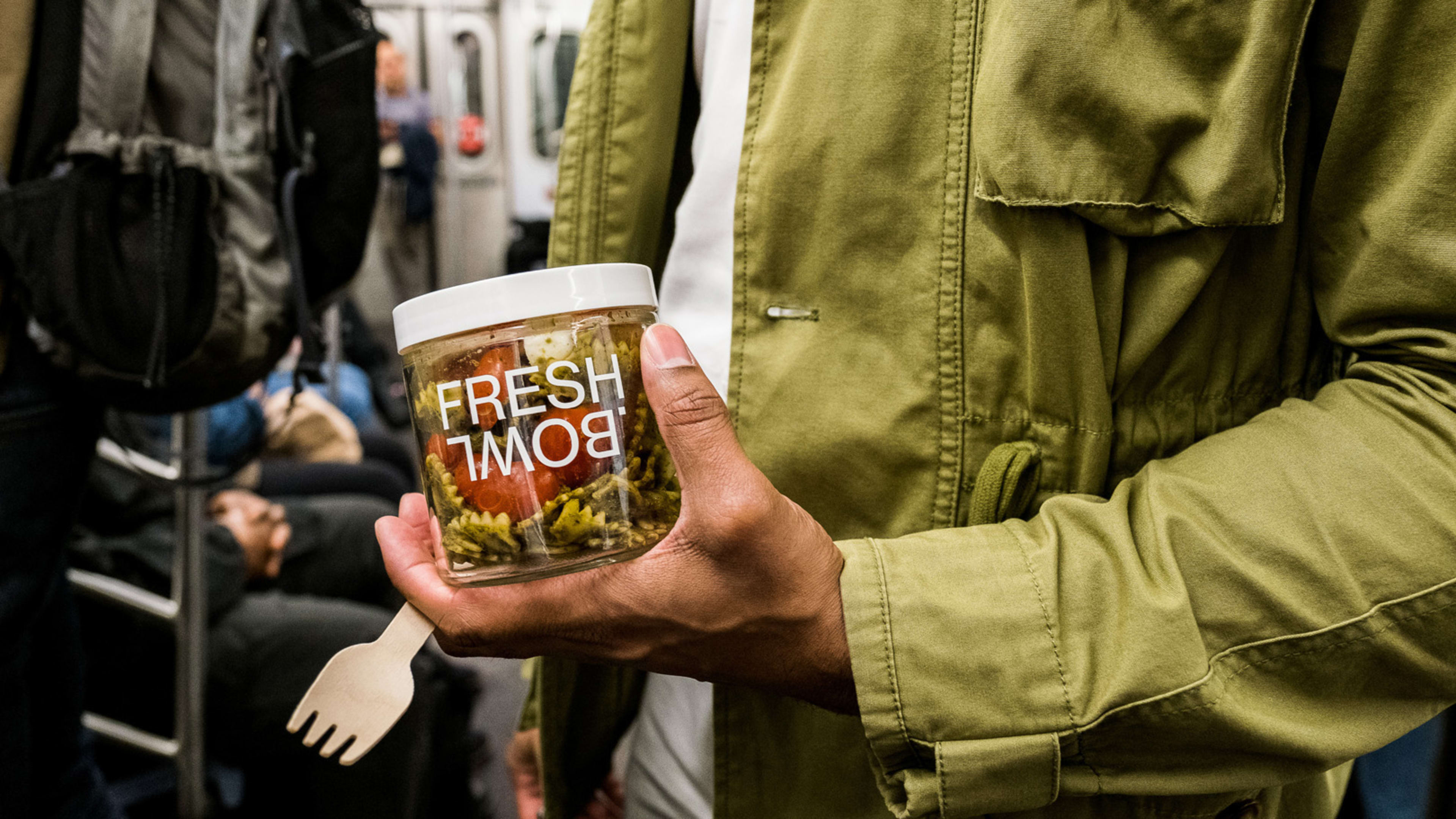Less than a year after launching in New York City, Fresh Bowl, the company that offers vending machine salads and other on-the-go meals in returnable glass to hungry commuters as a way to cut down on our immense food packaging waste, has big plans to expand. Currently, there are just five kiosks in the city, but cofounder Zach Lawless says the company aims to have 50 vending machines by the end of this year, and a total of 100 in 18 months.
A big reason Fresh Bowl feels ready to add its kiosks in more subway centers and office building lobbies—and, soon, retail locations—is because so far, its model seems to be working. Fresh Bowl aims to reduce waste and give greater access to healthy food by stocking vending machines with salads, grain bowls, and breakfast oats in reusable glass jars that can be returned for a discount off your next grab-and-go meal. Overall, across its current locations, Fresh Bowl has seen a jar return rate of 85%. (The MTA Subway kiosks are some of the lowest, at 75%.)
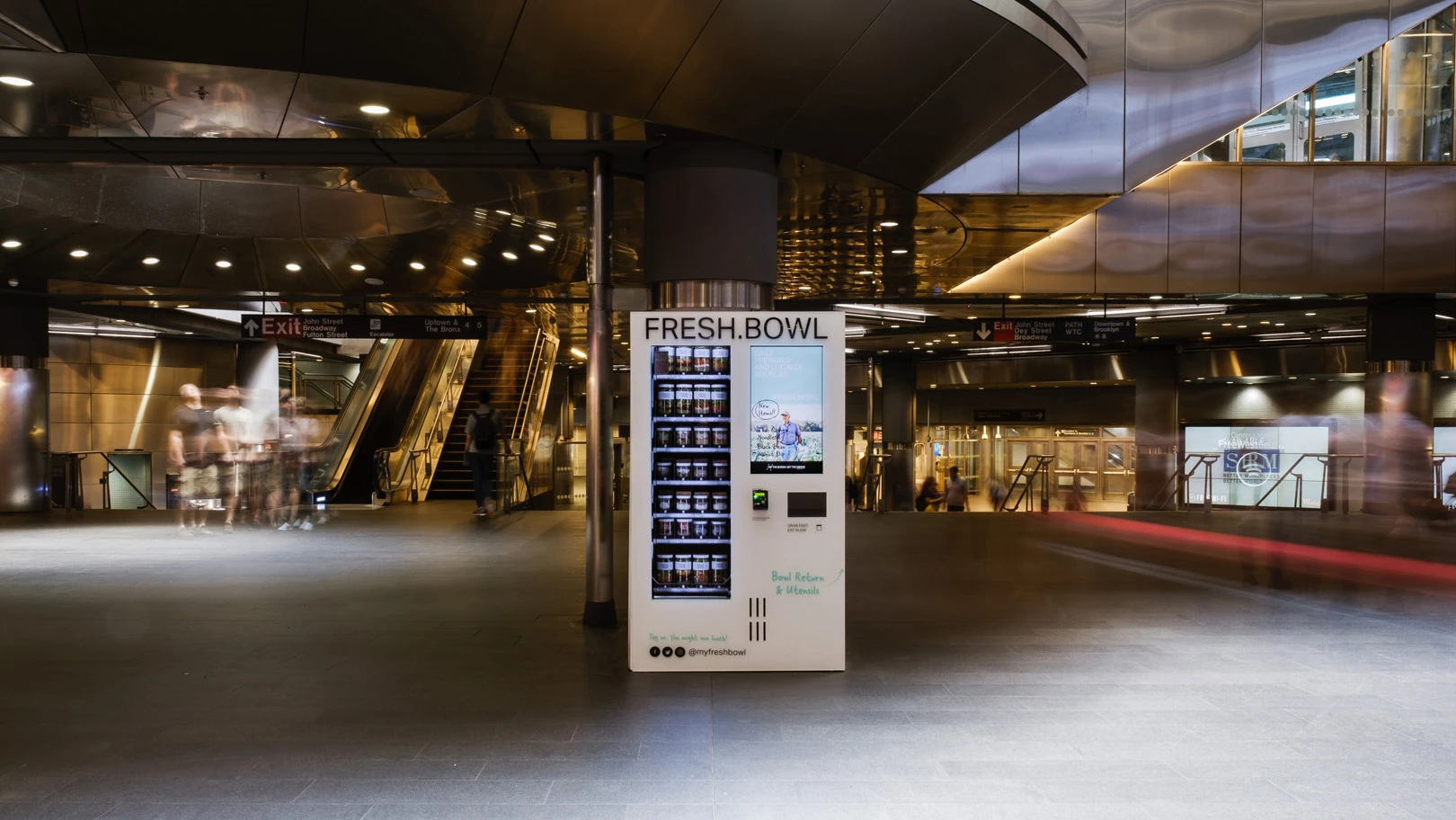
Still, Lawless says this is higher than what he and his cofounder, Chloe Vichot, expected. Vichot ran the now-shuttered Ancolie Cafe in the West Village, which offered salads in glass jars that customers could keep or return for a discount off their next visit. That only had a 30% return rate, though, according to Lawless, and he expected about the same rate at Fresh Bowl’s subway locations.
“[That] really speaks to the fact that people like the ability to drop it off and forget about it, and have a credit for whenever they want to use it,” he says. “A lot of sustainability systems . . . ask you to bring your own cup, which requires planning ahead, and then other ones ask for a big deposit where you have to return it. I think the way we’re doing it really speaks to the consumer, which is leading to the higher return rate, and a lot of that has actually been a learning experience for us.”
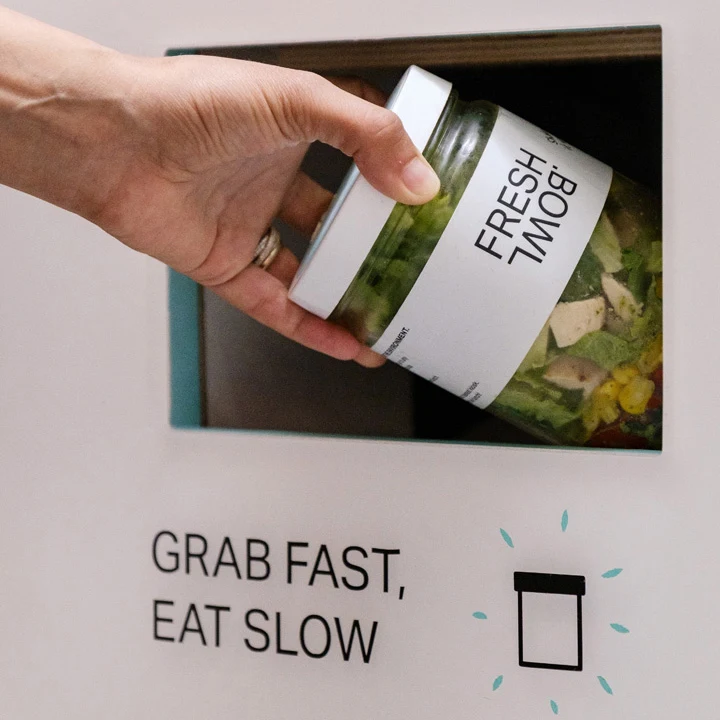
Fresh Bowl’s first prototype required a $2 deposit, but they saw pushback; customers were frustrated that the price of their salads jumped from $7 to $9 with that deposit tacked on. As more eateries and startups invest in reusables, there’s still not a clear understanding of what works best to motivate customer behavior: a penalty, by either charging more for disposables or charging a deposit to get a reusable back, or a reward, in the form of a discount? By changing their messaging, Fresh Bowl says they saw an increase in returns. And Lawless thinks that return rate will stay high as they add more locations, because more places to return the jars means it’ll be more convenient to do so. He anticipates people will pick up their meal at one location and return the empty jar at another.
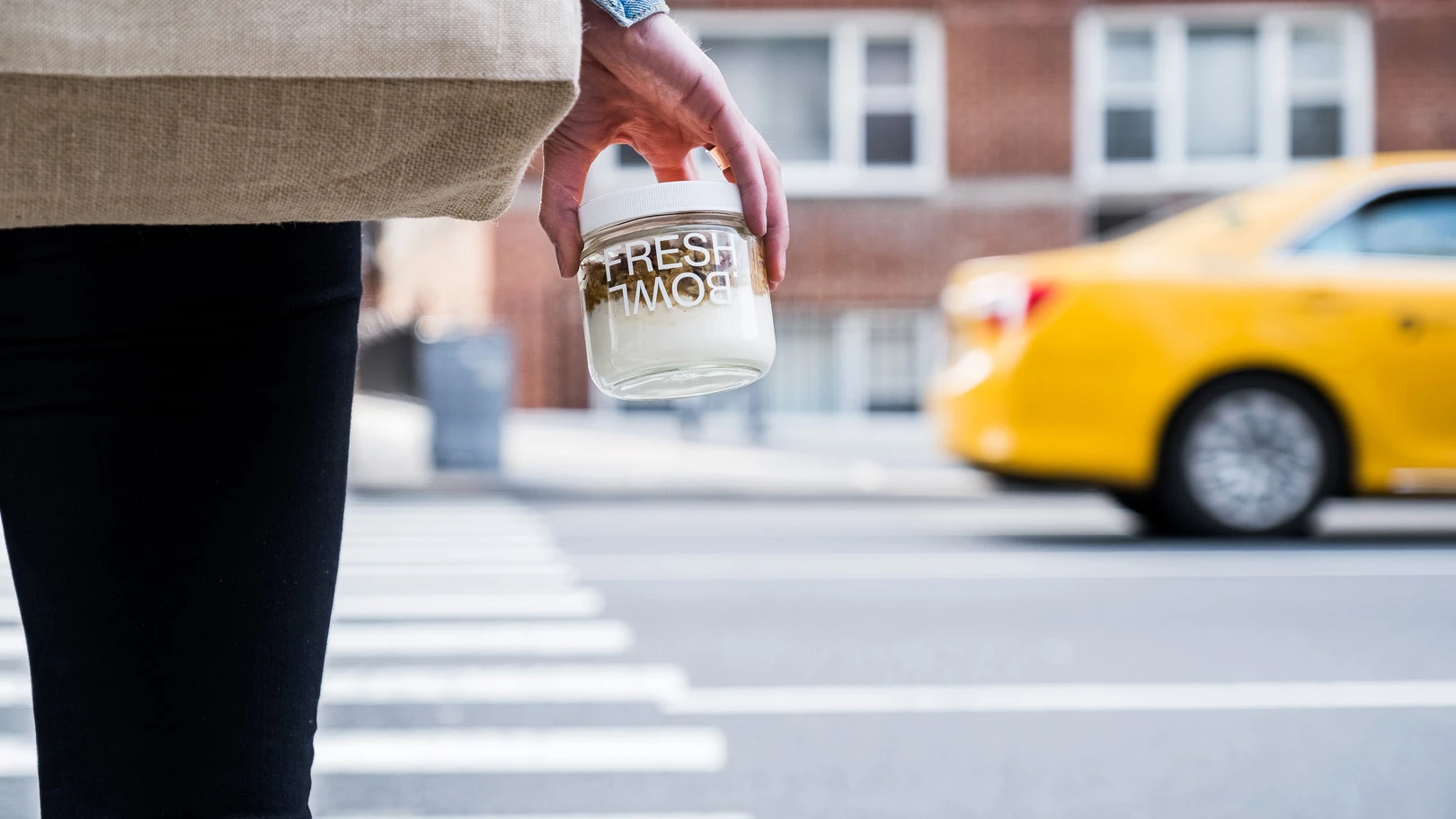
Fresh Bowl transactions require that the customer enters their phone number and a PIN, which keeps track of their rewards. The company also communicates with customers over SMS messaging; since these are vending machines and not service counters, customers can text questions about ingredients, allergies, or anything else. This means Fresh Bowl has data about what menu items specifically people are buying. “The more data that we get, the better that we can manage food waste,” he says. “From a sustainability standpoint, obviously the additional weight requirements from the glass jars is something we’ve thought about, but it’s still substantially less [than plastic] considering the fact that most of these plastics are getting shipped from overseas.”
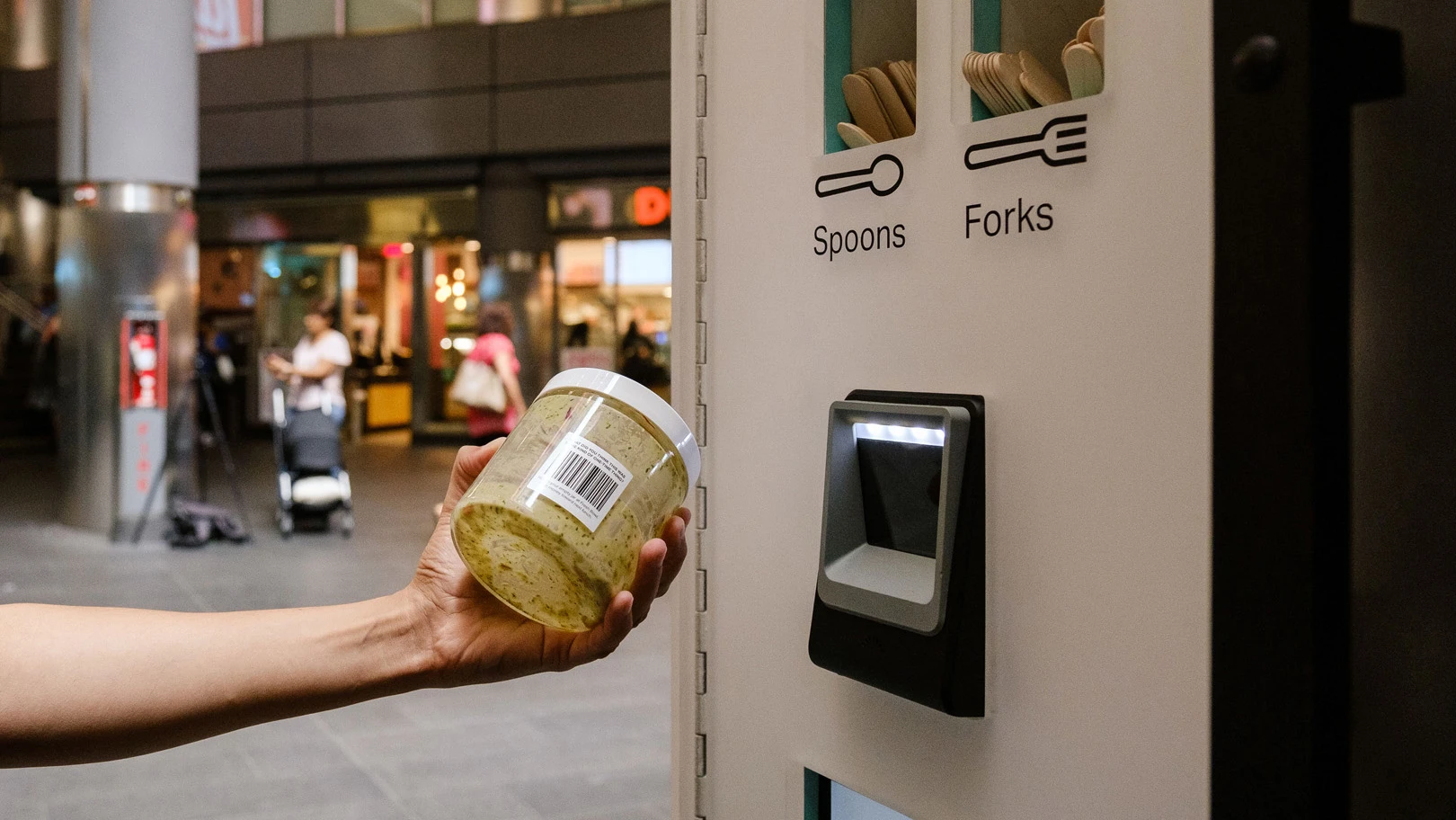
Fresh Bowl says its returnable glass jars have prevented more than 6,000 single-use plastics from entering landfills (Globally, food and packaging/containers account for 45% of all the materials landfilled in the U.S.). The company just closed a $2.1 million seed funding round co-led by Betaworks Ventures and New Ground Ventures. With that funding, Fresh Bowl will open more kiosks, experiment with different return initiatives like different price points for different jars, and make the whole process “fun and frictionless,” as Lawless says, so more people can help create less waste.
Recognize your brand’s excellence by applying to this year’s Brands That Matter Awards before the early-rate deadline, May 3.
